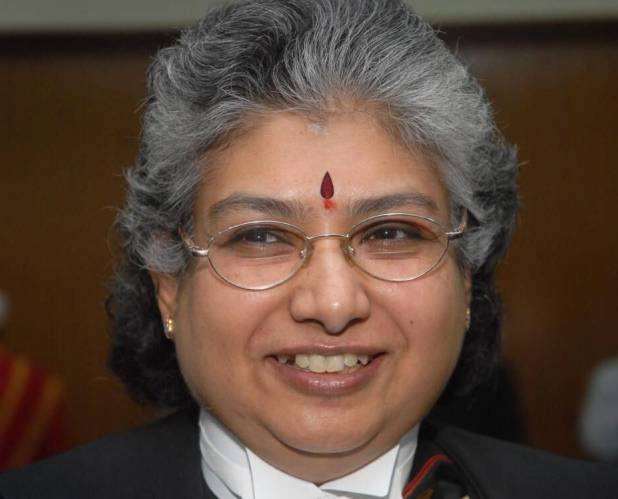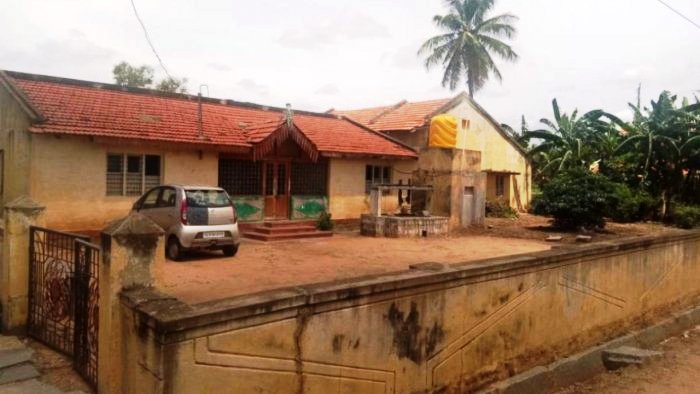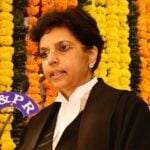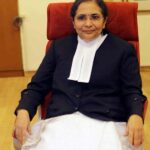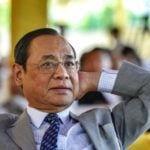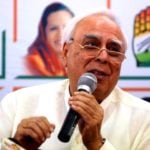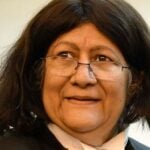B. V. Nagarathna Age, Husband, Family, Biography & More
Quick Info→
Hometown: Karnataka, India
Husband: B.N. Gopala Krishna
Age: 60 Years
| Bio/Wiki | |
|---|---|
| Full name | Bangalore Venkataramiah Nagarathna [1]Supreme Court of India's Press Release |
| Profession | Judge of Supreme Court of India |
| Physical Stats & More | |
| Eye Colour | Black |
| Hair Colour | Salt & Pepper |
| Career | |
| Designation(s) | • Judge of Karnataka High Court 18 February 2008 – 30 August 2021: She was nominated by former CJI K. G. Balakrishnan and appointed by Pratibha Patil. • Judge of Supreme Court of India Assumed office on 31 August 2021: She was nominated by N. V. Ramana and appointed by Ram Nath Kovind. |
| Notable Judgement(s) | • 2012: Ordered the federal government to examine the possibility of regulating broadcast media in India • 2016: Sri Jagadev Biradar vs State of Karnataka • 2017: The Tabocco Institute of India vs Union of India • 2018: Sri Mookambika Temple vs Mr. Raviraja Shetty • 2020: Upheld the government policy directing both public and private colleges in Karnataka to opt for a standard admission method • 2021: Overruled the circular issued by the Karnataka Power Transmission Corporation Limited (KPTCL), stating under no circumstances would the second wife or her children be eligible for appointment on compassionate grounds if the marriage has taken place during the subsistence of the first marriage • 2022: Differed with the majority order by the Supreme Court of India in which the apex court upheld the centre’s decision, taken on 8 November 2016, to demonetise Rs 500, and Rs 1000 notes [2]The Indian Express |
| Personal Life | |
| Date of Birth | 30 October 1962 (Tuesday) |
| Age (as of 2022) | 60 Years |
| Zodiac sign | Scorpio |
| Nationality | Indian |
| School | • Sophia High School, Bengaluru (Till 10th standard) • Bharatiya Vidya Bhavan's Mehta Vidyalaya, New Delhi |
| Hometown | Engalaguppe Chatra, Pandavapura in Mandya district, Karnataka [3]Deccan Herald |
| College/University | • Jesus and Mary College, New Delhi • Faculty of Law, University of Delhi |
| Educational Qualification | • B.A. (Hons.) in History from Jesus and Mary College, New Delhi [4]Legal Era • L.L.B. from Faculty of Law, University of Delhi [5]The Hindu |
| Controversy | In 2009, B. V. Nagarathna caught the public eye when she, along with Karnataka high court chief justice PD Dinakaran and a senior judge, was unlawfully detained by agitating advocates. Apparently, the advocates noticed that despite the call to boycott all proceedings in the courts across the state, some judges were attending hearings. The Advocates Association of Bangalore had called for the boycott to protest against PD Dinakaran, who continued to attend hearings despite being accused of accumulating huge assets, corruption, and serious irregularities while disposing of cases. According to the letter written by the high court registrar-general to the police commissioner, Nagarathna was manhandled, and Dinakaran had a sharp object thrown at him, causing an injury. [6]DNA Following the incident, Nagarathna made a public statement, saying, "We cannot be cowed down like this. We have taken the oath of Constitution" |
| Relationships & More | |
| Marital Status | Married |
| Family | |
| Husband/Spouse | B.N. Gopala Krishna |
| Parents | Father- E.S. Venkataramiah (19th Chief Justice of India)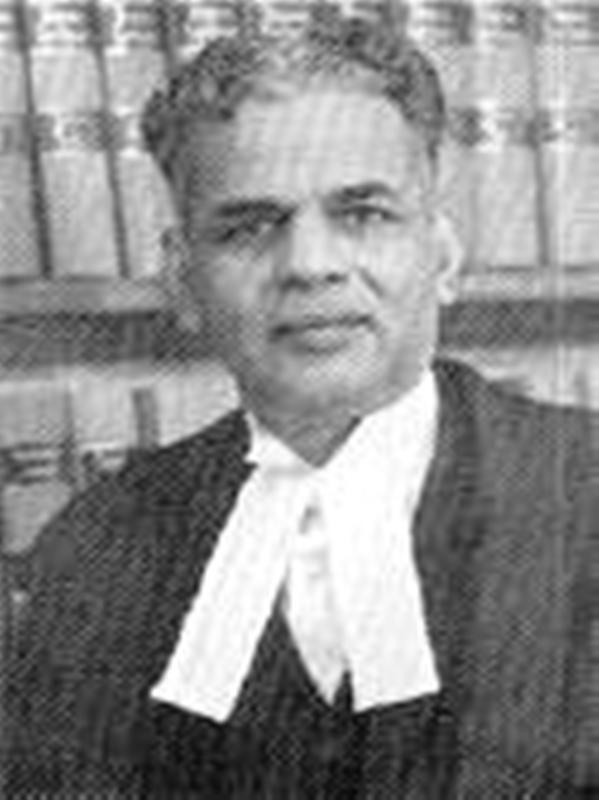 Mother- Padma Venkataramiah |
| Children | Daughters- Nayantara BG (Advocate) and Prerna BG |
Some Lesser Known Facts About B. V. Nagarathna
- B. V. Nagarathna is an Indian lawyer who was appointed as a judge of the Supreme Court of India on 26 August 2021. Previously, she served as the judge of the Karnataka High Court, where she delivered a number of significant judgments relating to commercial and constitutional law.
- Born to the 19th Chief Justice of India, E.S. Venkataramiah, Nagarathna was inclined towards pursuing a career in law since childhood.
- While growing up in Bengaluru, Nagarathna frequently visited her paternal family home in Engalaguppe Chatra in Mandya district to enjoy village life.
- After studying law at the Faculty of Law, University of Delhi, she decided to return to Bengaluru; meanwhile, her father was serving as the Chief Justice of India in Delhi.
- B. V. Nagarathna enrolled as an advocate with the Bar Council of Karnataka on 28 October 1987 at Bangalore (now Bengaluru) in Karnataka. In the same year, she started her practice at KESVY and Co. under Barrister Vasudev Reddy and Senior Advocate G.V. Shantharaju.
- During her tenure as an independent practising lawyer, from 1994 to 2008, she practised in a wide variety of areas such as arbitration, land acquisition, service law, family law, administrative law, constitutional law, commercial law, etc.
- Nagarathna has also served as an Amicus (an impartial adviser to a court of law) for the lakes’ rejuvenation in Bangalore.
- On 18 February 2008, she was appointed as an additional judge of the High Court of Karnataka. On 17 February 2010, she was designated as a permanent judge of the High Court of Karnataka.
- In 2012, noting the rise of false news, Nagarathna, along with another judge, directed the Union government to consider the regulation of broadcast media in India. She rooted for establishing a statutory framework that would allow self-regulation by the broadcast industry.
- In 2016, a division bench comprising of Justice B.V. Nagarathna dismissed the appeal filed by the Karnataka government, questioning the verdict of striking down the Motor Vehicles Taxation (Amendment) Act introduced in 2014. The High Court of Karnataka ruled that the state government could not require owners of vehicles bought outside the state to pay a lifetime tax to use their vehicles in Karnataka, citing the state’s law was violative of Article 246(3) of the Constitution. Article 246(3) confers Parliament with the power to amend the period mentioned in the MV Act and not the State legislature.
- In 2017, a division bench comprising Justices B S Patil and B. V. Nagarathna struck down the mandatory 85% pictorial warning rule for tobacco products, which was earlier notified by the Union Health Ministry. The high court bench held that the Union Health Ministry did not hold the jurisdictional power to make such amendments. However, the bench declared that the 40 per cent pictorial health warning rule, which existed prior to the amendment rules, must be followed.
- In 2019, she ruled that a temple was not a commercial establishment, under provisions of the Karnataka Shops and Commercial Establishments (KS&CE) Act, 1961; hence the employees of a temple in Karnataka were not entitled to gratuity under Payments of Gratuity (PG) Act, 1972.
- In 2020, a division bench comprising of Nagarathna upheld the state government’s policy decision to ensure the standardization of admissions into both public and private colleges in Karnataka in view of the COVID-19 pandemic. The bench mentioned the state had taken the decision to ensure uniformity amongst universities and to avoid difficulty faced by students on account of different methods being adopted by the different universities in the state.
- In 2021, a division bench headed by Justice B. V. Nagarathna held that there were no illegitimate children, and the law should recognize them and confer them with equal protection and rights. The bench stated,
No child is born in this world without a father and a mother. A child has no role to play in his/her birth. Hence, law should recognise…there may be illegitimate parents, but no illegitimate children.”
- Hon’ble Mrs. Justice Nagarathna was due to retire on 29 October 2024, unless she got elevated to the Supreme Court as all SC judges get a three-year extension.
- In August 2021, the collegium, headed by CJI N. V. Ramana, took a historic decision to recommend three women for the appointment of judges of the apex court of India, and Justice B. V. Nagarathna was one of the appointed judges. The reason behind the prominence of the decision was that independent India would get its first women Chief Justice, as B. V. Nagarathna was likely to head the judiciary in 2027. [7]The Indian Express It was inferred that this would be the second instance of two generations of a family heading the judiciary after the 16th CJI, Y. V. Chandrachud, and his son, D. Y. Chandrachud.
- On 26 August 2021, she was appointed as a judge of the Supreme Court of India. On 31 August 2021, it was the first time in the Indian Supreme Court’s history that nine judges took oath in one day. The names of those judges were Justice Abhay Shreeniwas Oka, Justice Vikram Nath, Justice Jitendra Kumar Maheshwari, Justice B. V. Nagarathna, Justice C T Ravikumar, Justice M M Sundresh, Justice Bela M Trivedi, Justice Hima Kohli, and Justice P S Narasimha. With three women judges swearing in, the Supreme Court of India secured four sitting women judges, beating the previous high of three sitting women judges.
- In her farewell speech at the Karnataka High Court, Justice Nagarathna urged women to have faith in themselves and stride ahead. In her emotional farewell speech, she said,
The message from this leaf in my book which I want women advocates to take note of is, that with access to the right opportunities, each one of you can achieve your dreams. I, therefore, urge each one of you to seek out these opportunities armed with faith in yourself and stride ahead to achieve all that you want to and also give back to society.”
- Thereafter, in the same month, she was the chief guest at the inaugural function of the creche (child care centre) facility at the City Civil Court Complex in Bengaluru for the benefit of children of advocates and staff of the court. The first of its kind facility in a court complex was approved by Nagarathna when she was the administrative judge of City Civil Court Bangalore.
- She has also held the position of chairperson of various committees including the committee overseeing commercial court, Juvenile Justice Committee, and the committee overseeing the implementation of the POCSO Act.
- On 2 January 2022, while showing her dissent to the majority order by the Supreme Court of India that upheld the centre’s decision, taken on 8 November 2016, to demonetise Rs 500, and Rs 1000 notes, Justice B V Nagarathna said,
Records show no independent application of mind by RBI. Notification of Nov 8, 2018, is unlawful and action of demonetisation of currency notes is vitiated.” [8]The Indian Express
References/Sources:

